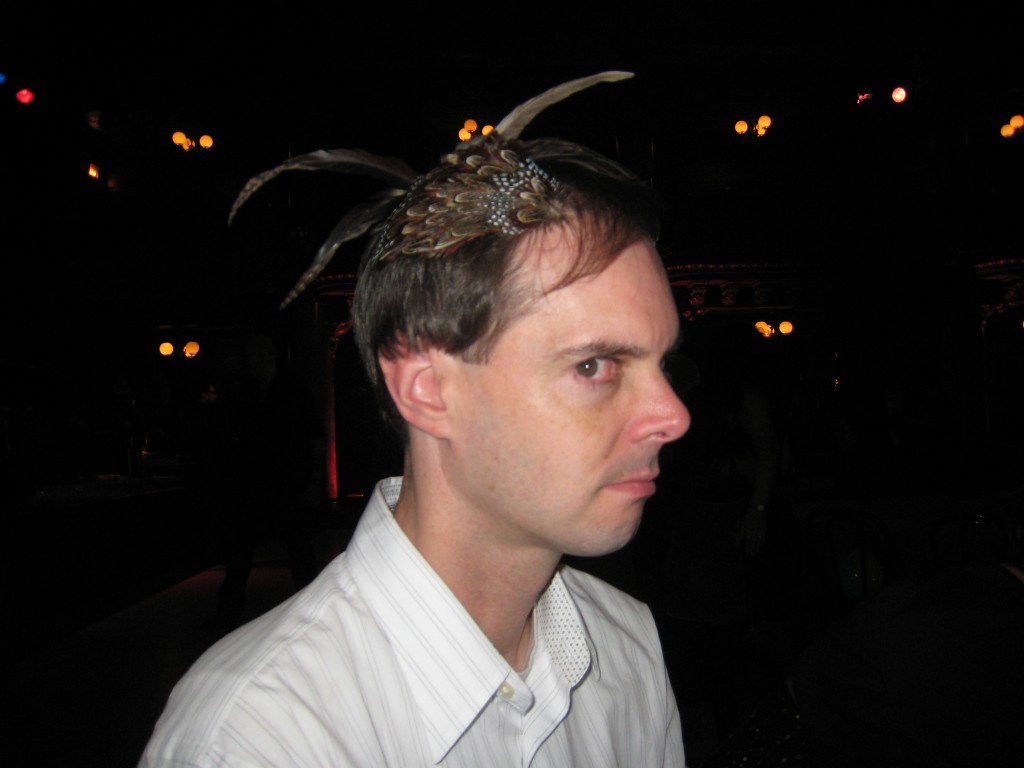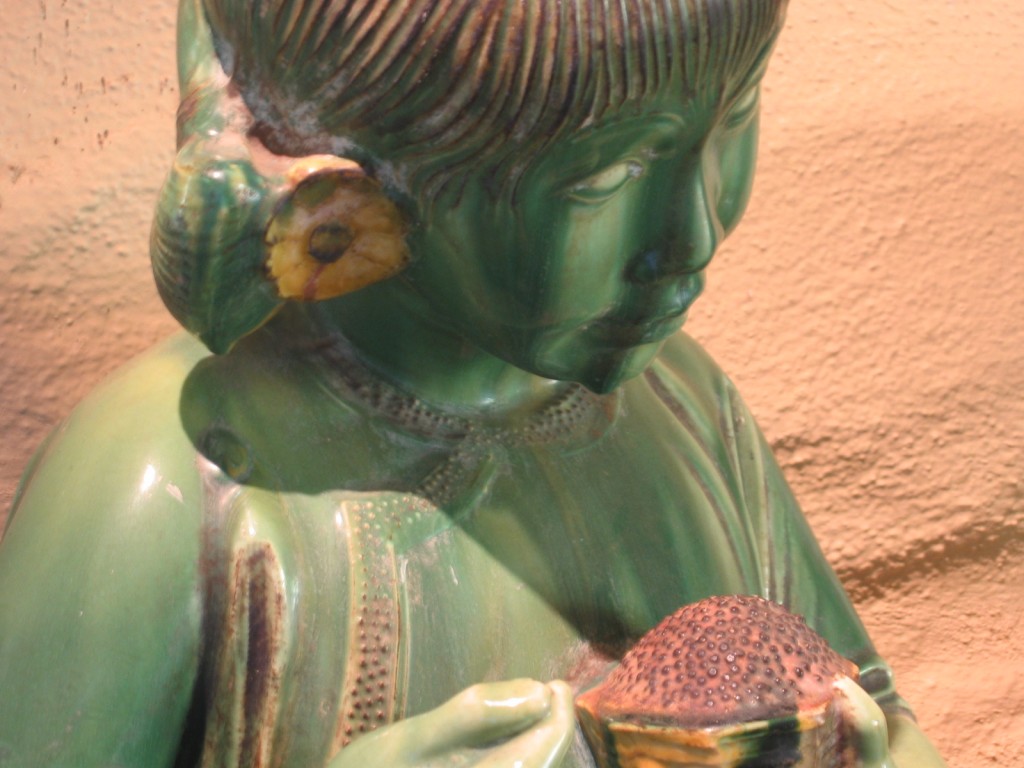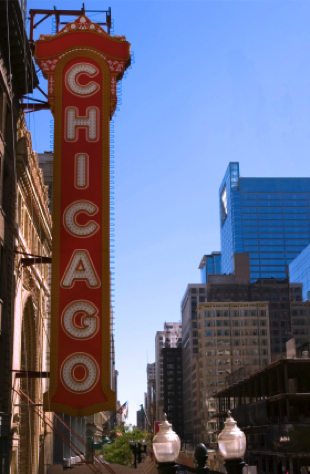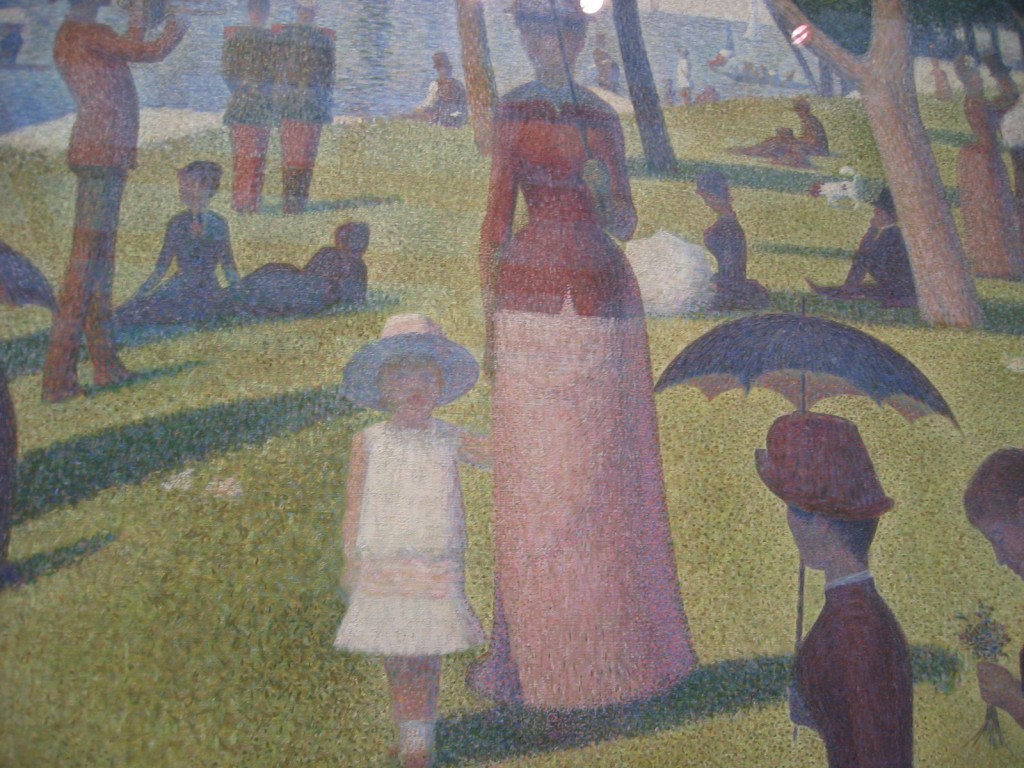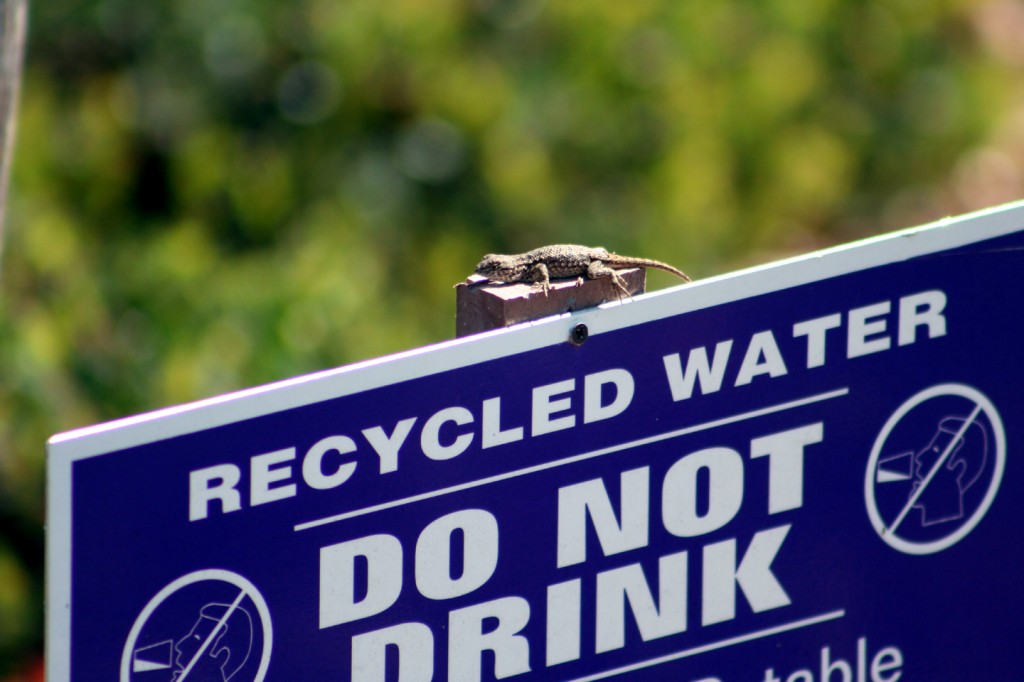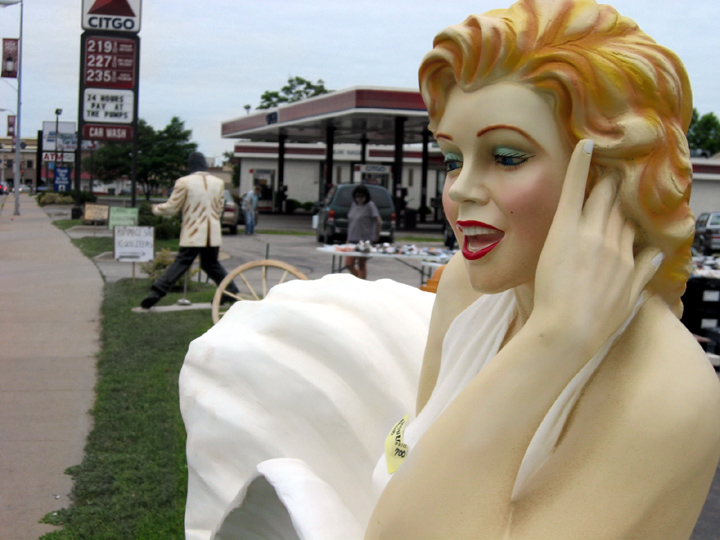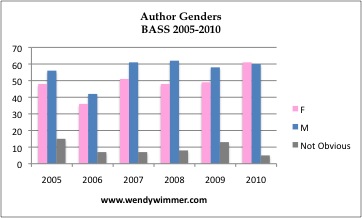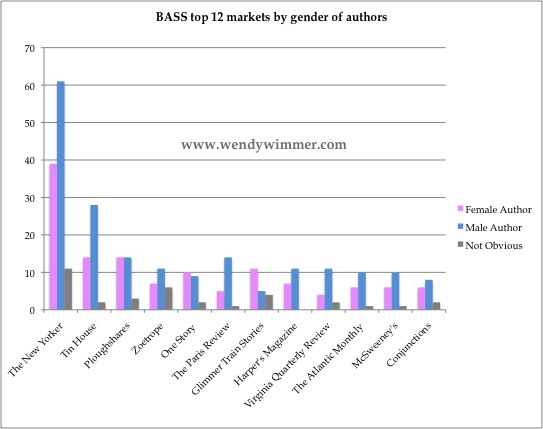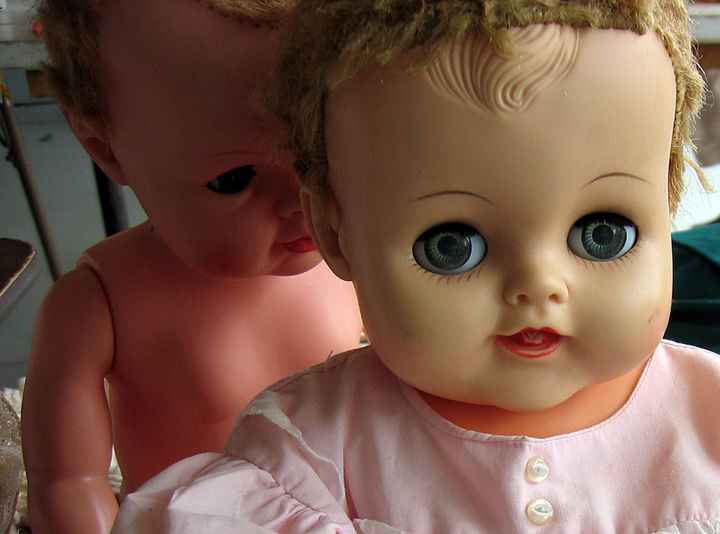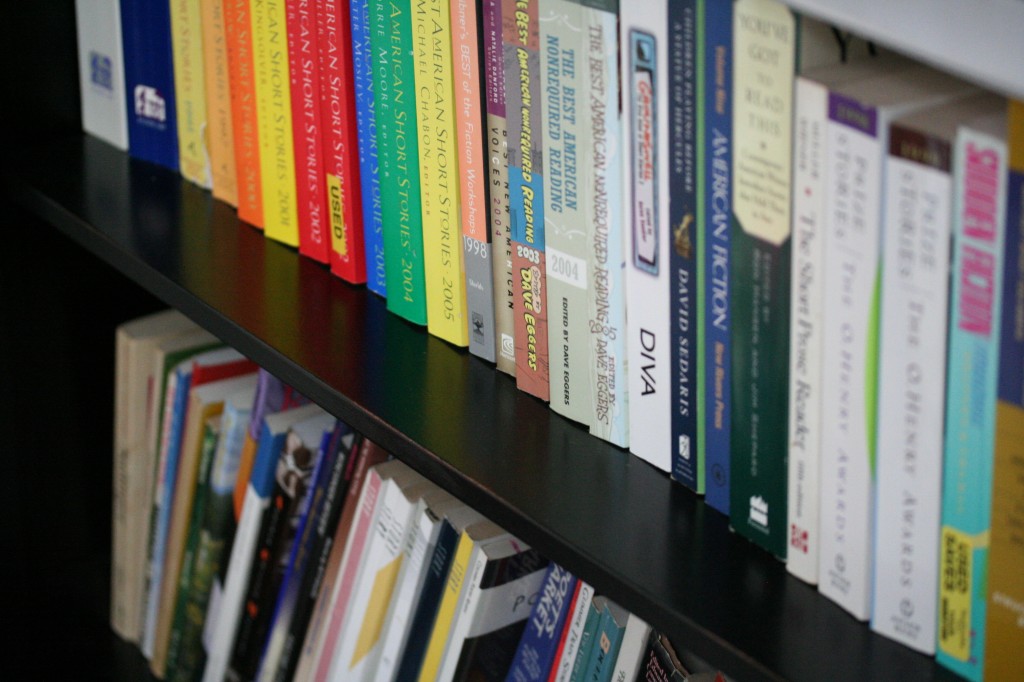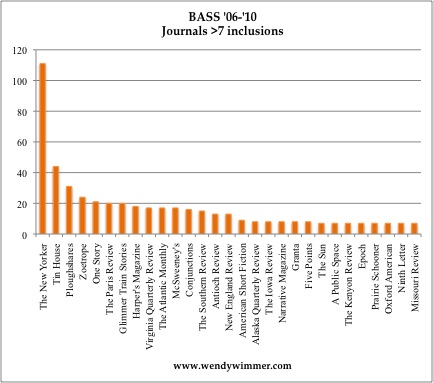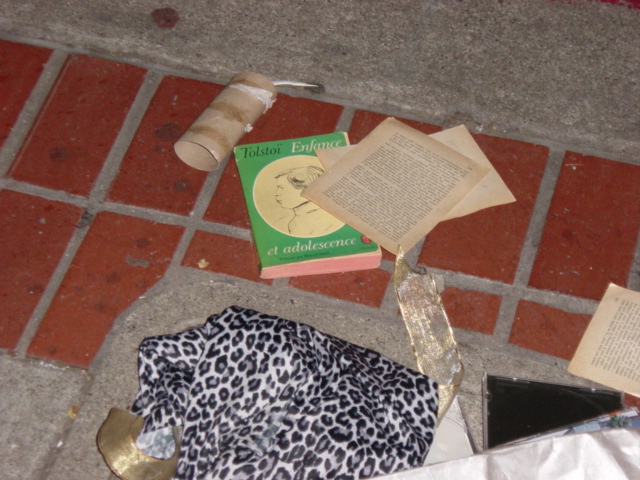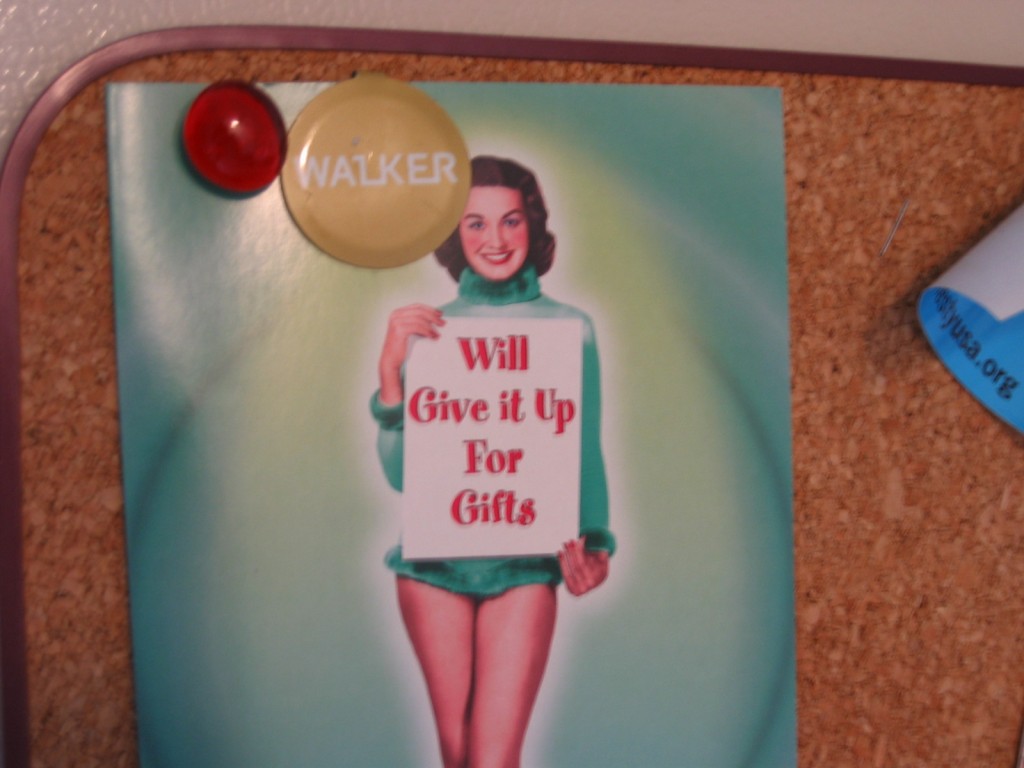
Well, that was eye-opening!
It seems that my question of why writers don’t subscribe to the literary journals they hope will publish their stories is actually not so simple. There’s really two issues: why aren’t writers READING the journals and why aren’t people subscribing to them. Let’s break down both sides of that coin.
Marne Grinolds pointed out that she reads journals at her local library. She wrote:
I know (because they have told me) that some editors feel using this tactic is somehow cheating, but I don’t see how you can make that argument stick. Wise journals already charge more for institutional subscriptions than they do for personal ones, and there’s certainly no way I could afford to subscribe to the hundreds of lit journals my library can.
And I thought I was lucky for getting to see The Killers for free two weeks ago at VMworld, but Marne has it made — she has access to hundreds of lit journals RIGHT THERE AT HER FINGERTIPS. I agree with Marne that this does count: you’re consuming the periodical, regardless of who actually paid the bill. Those writers are getting read, those pages are being flipped. That’s why the books were put on this earth, right? I guess the spirit of my argument was assuming that people who would read journals would also be subscribing, which I totally conflated. More on that later in the post.
Kate Maurer brings up a valid point:
I already don’t have time to read all the journals that arrive. I am a writer who is at my day job 35 hours a week (a schedule I was lucky to get and that involved taking a $3,000 annual pay cut to eek out five extra hours a week to write), and as an editor in a non-literary field, a good deal of that time I am reading things that I wouldn’t read if I didn’t have to pay the bills. In the remaining time, I try to find the wherewithal to read books and journals plus actually write my own work and revise it and submit it and fight through all those familiar forms of self-doubt, etc. (plus do all the things normal people do when they aren’t at work) Meanwhile I feel guilty that I don’t read more books or journals, buy more books or journals, attend more local live music shows, go to the art theater, go to more readings, comment on the work of any number of writer friends who are waiting on me, participate in more community activism, or do any number of things that support things that are important to me (even though I already do more of all of the above than many people). But I don’t think this means that I am not entitled to be a writer or to attempt to publish my work in whatever venues are available to it.
I totally get that. I’m busy too. I work with words for a living, do an excessive amount of airport time, and also, the new season of Bored To Death is starting soon. Even more time-consuming, I am writing a novel, trying to read books for enjoyment and to stay on top of the lit world (my To Be Read book shelf is staggeringly behind, mostly because my friends keep publishing books and I will always read one of their books before, say, Jonathan Franzen or something) as well as reading my ten to fifteen lit journals that I get per year (my subscriptions plus the ones I buy on newsstands). I have a very sad pile of them sitting right now on my desk next to me. When I can’t see over the pile anymore, I start putting them in the john, because I know that I’ll read at least half a story a day just out of sheer boredom. I also tend to take one with me on planes to read during those times when it is not safe to use portable electronic devices, and then I leave it in the seat back when I deplane. (I’m not trying to sound especially altruistic, I only included that last bit because I don’t get to use the word “deplane” enough.) Anyway, I know you’re busy. We’re all busy. We do what we can. And if it’s important, we make sure it happens. It takes about twenty minutes to read a short story, yes? If you read one short story a day, you’d consume two lit journals a month just on your coffee breaks and your brain would be happier than if it spent that time catching up on the Dance Moms TWOP forums.
And by “you” I don’t mean Kate, I mean me because my god, I’ve got to stop watching Dance Moms.
Robin Kalinich said
I’m an aspiring (and most failing) writer, and I consider subscribing and reading lit mags almost as important as the writing itself.
Hallelujah! I thought I was the only one. Can you imagine a professional athlete saying that they didn’t have time to go to the gym? A basketball player whining that the hoop was too high? Or a dancer who said that it was impossible to find time to practice dancing? Would you feel bad for them if they didn’t make it into the pros? No, you wouldn’t, because they clearly didn’t want to hone their craft. (I certainly know what the dance teacher on Dance Moms would say.)
There are a lot of demands on our time, pretty much like every adult in the free world. But you know, the concerts will still be attended, the bills will still get paid, the commuting time will still happen if you read a journal now and then.
My favorite came from Chris Roberts, who said
Either Wendy is ninety years old or operating in an alternate state of reality. More unreality. Slush pile? Really? Hint: it’s 2011, not the Roaring Twenties. It’s such an droll, antiquated term that it leads me to believe that Wendy worked at a literary magazine office located under a rock. “Slush Pile Whisperer” That’s a hoot. I guess W. is going to break out into the Charleston…cut a rug dinosaur!
Chris gets extra points for using the word “droll”. For what it’s worth, I ended my editing duties on the Cream City Review in 2008 when I completed my Masters and while it annoyingly still used paper submissions (oh look, I talk about reading the slush pile here), my editor friends who are using Submishmash have recently referred to unsolicited submissions as the slush pile. Is there a different term in vogue these days? Also, RAWWWR! I think I have officially made it in the literary world now that I’ve had an angry young writer call me a dinosaur. Now where are those fat Alice Munro-esque royalty checks?
Shannon, however, really gave me pause. Here’s her comment in total:
This comes across as coming from a really privileged position.
I think it is more than fantastic that you can do all of those things with your money. It is, I envy that a little bit.
That said, there are a lot of writers like me who are the breadwinners in their households, who are the working poor, who are otherwise not in a position to financially support literary magazines when a lot of us are on the verge of being unable to financially support ourselves and our families. I don’t honestly think I would have ever even started to even try getting work published if I had to wait until I could afford to subscribe to every magazine I like.
If it is suddenly common sense to say, screw you poor folks, that doesn’t honestly sound like the kind of literary world that has room for me or anyone like me. And it’s not one I’d like to be a part of even if it would have me.
Is it a privileged position? I spend about $100 a year on lit journal subscriptions, and then tend to buy probably five to ten issues throughout the year off the racks in indie bookstores when I travel (shout out to Sam Weller in Salt Lake City and Myopic in Chicago!) that probably add up to another $100. Honestly, I can’t think of another craft that only costs $200 a year. I have a friend who runs marathons. She goes through $100 pairs of shoes every three months. I have another friend who makes less than $35K per year who spends $12 just about every weekend going to see a different movie at an art house cinema. Hell, a Netflix subscription alone… That adds up to a LOT of journal subscriptions, you know?
But Shannon’s right. I am speaking from a place of privilege. I can afford these journal subscriptions probably a lot easier than my friends can afford their running shoes and weekly movie addiction. When I was in college, and shortly after that while I worked in nonprofits, it was a different story: we were so broke that we considered Rice-A-Roni to be really treating ourselves because that stupid flavor packet somehow made 20 cents worth of rice and pasta cost $1.50. And whenever I got a Barnes & Noble gift card for Christmas, I still spent it on single issues of Glimmer Train and Story (now I’m really showing my dinosaur status). Yeah, I know from poor, and thank you Shannon for reminding me of that.
That’s why I’m going to give away some subscriptions to lit journals. Really, I’m not giving them away so much as investing in the journals and the community, but if you feel weird about it, you can think of it as a starter subscription that you can renew in the future when you’re starting to make some more dough. I’ll be using Random.Org to select winning entries and then will give away as many subscriptions until I’ve given away at least $100 of lit journal subscriptions to broke writers.
Here’s how to enter!
Leave a comment with just four easy answers:
- What was the name of the last lit journal you read?
- What was the last journal where you submitted your work?
- Your email address in the blog comment system (just make sure you use a real email address and only I can see it, promise), and
- Which lit journal would you like a subscription to?
That’s all. Easy, right?
Who’s eligible for this giveaway
Writers who are too poor to buy subscriptions to lit journals and don’t have access to fabulous libraries such as Marne’s. I’m not going to ask for proof of income — this is totally on the honor system. I mean, don’t kid yourself: if you’re stopping at Starbucks more than once a week for a mocha, be cool and leave the prizes to the people who are really hurting in this godforsaken economy.
Also, to keep things fair, if I know you, you’re not eligible for this contest. Sorry it has to be that way, but I’d be happy to give you some lit journals next time I see you. I promise not to give you the ones that have been in my john.
Multiple Winners!
This contest will go until Oct 14 when the prizes will be awarded, with the first winner getting a subscription of their choice. If the first winner’s subscription is less than $100, I’ll draw again, and the second winnner’s subscription will similarly come from that $100 pot. I’ll keep picking comments until I’ve purchased at least $100 of subscriptions for as many commenters as possible. Also, you can comment as many times as you want, but only your first comment on this entry counts. Does that make sense? Ok, that’s how it will work. I hope I’ve covered everything.
Ready, set, go!
*The little metal thing on the photo at the top of this was not a campaign button for the current Wisconsin governor, whom I most definitely do NOT support, but rather a thing I wore at some charity event where I was volunteering to help walk people back and forth to different places on campus. Regardless, the holiday card still makes me laugh.
